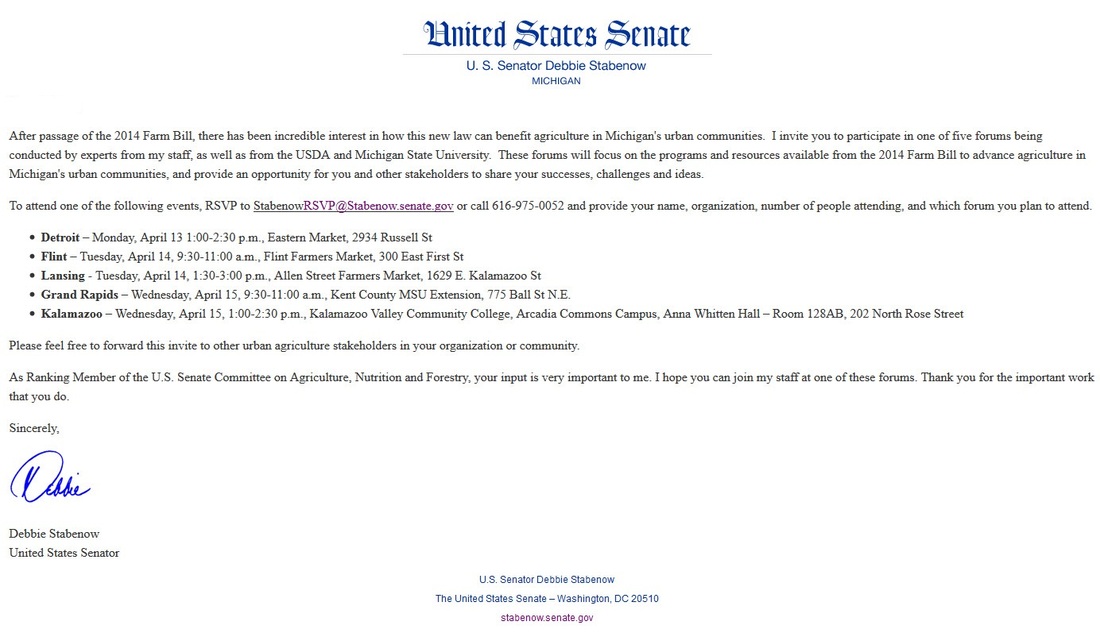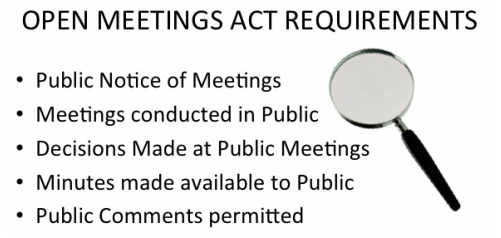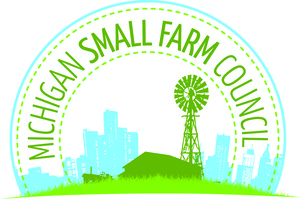Senator Stabenow invites discussion on how 2014 Farm Bill can support urban agriculture in Michigan3/30/2015
By Wendy Lockwood Banka
This year the Michigan Small Farm Council again made a request to be included on the Site Selection GAAMP Committee, because the work of that committee is of great interest to us as it has significantly impeded small farm rights in recent years. As usual, our request was denied. So this year we tried a new tactic, and wrote letters to each of the eight GAAMPs Committee Chairs to ask that they begin complying with the Michigan Open Meetings Act. The letter we wrote to Dr. Wendy Powers, Chair of the Site Selection GAAMP Committee, is here. Apparently each of the GAAMPs Committee Chairs deferred to MDARD on this question, and MDARD asserted to them that the GAAMPs Committees are not subject to the Michigan Open Meetings Act. The letter that Brad Deacon wrote to the Chairs of the GAAMPs Committees is here. We are not attorneys, and can't judge the legal validity of Mr. Deacon's argument. What is clear, however, is that agricultural policy affects everyone who eats. So whether or not the GAAMPs Committees are required by law to be subject to the Open Meetings Act, the GAAMPs Chairs should open the process so the public can understand the work that goes on there, and participate when they have information to contribute. Meanwhile, the GAAMPs Committees are completely closed to the public, and have no representation from small farm interests. We await with bated breath their proposed changes for 2016. by Wendy Lockwood Banka
In August of 2014 50,000 turkeys died in a single weekend in West Michigan, due to lasalocid contamination in their feed. Turkeys at Sietsema Farms are routinely fed lasalocid, either to control parasites or to promote growth, but this batch of feed contained much more than the intended dose, because additional lasalocid was mixed with the feed from a contaminated grease product called Lascadoil. This week we have new information on what happened, from the response of the FDA to two different FOIA requests. First, from a FDA slide deck dated 11.13.2014 we now know that in addition to Michigan, lasalocid-contaminated grease was distributed to Ohio, Illinois and Indiana. In addition, we received a copy of a 483 FDA Report on Shur-Green Farms, LLC, which states that Shur-Green Farms marketed, sold, and shipped Lascadoil waste - an industrial by-product intended for use as a bio-fuel - as an ingredient for use in animal feed. Furthermore, Shur-Green Farms sent an email to its broker confirming that Lascadoil could be used in animal feed. In addition, the FDA report states that Shur-Green Farms continued to distribute lasalocid-contaminated Lascadoil to animal feed manufacturers, even after being notified by its supplier that there was an ongoing FDA investigation due to Lascadoil contaminated feed. More is sure to be revealed as investigations continue, but two things are already clear. One is that we can't trust food producers to self-regulate to ensure a safe food supply for consumers. Two is that we can't trust our state government to notify us when serious food contamination issues occur; Governor Snyder has yet to acknowledge that a major feed contamination issue occurred in Michigan on his watch, and neither Governor Snyder nor MDARD has issued a single press release on this issue. Lack of trust in the conventional food system and lack of trust in the state government to adequately regulate that industry is one of the major reasons that people in Michigan are increasingly looking to grow their own food. Given their poor track record in keeping our food supply safe and transparent, the State of Michigan should end its efforts to limit the ability of Michigan citizens to grow their own food by making changes to the GAAMPs, changes to the MAEAP, and changes to existing laws that would eliminate existing rights to grow food. People in Michigan have a right to food that is free of drug residues, and a right to a state government that works for the benefit of the people rather than the benefit of an industry. A full set of links to original documents and news stories on the Lasalocid contamination issue can be found here. by Wendy Lockwood Banka
The Urban Livestock Workgroup (ULW) Report has now been released. I expect that much will be said about the policy and technical arms of this report in the coming weeks, but for the moment I want to put a copy of the report in the hands of everyone who wants to read it, and to make the major policy conclusion clear. In a nutshell, the Urban Livestock Workgroup Report recommends new legislation to put urban livestock under local control. I was a member of the ULW policy group and dissented from this majority opinion, as did three others. It is no surprise that this was the outcome of the group, since the composition of the group was clearly weighted toward interests other than urban livestock agriculture. To my knowledge there were only two members of the ULW who actually practice livestock agriculture in an urban or suburban areas, and so have a personal understanding of and interest in advancing urban livestock agriculture. While concerns of those not engaged in urban livestock agriculture are valid, the extent to which those interests were represented - and the extent to which actual urban agriculture interests were excluded - was problematic for a workgroup with a charge to "stimulate and support local efforts to address the increased interest in raising livestock in urban/suburban areas for home use and sale to local markets." The list of committee members is in the report. The majority consisted of township and municipal officials, and large agriculturally-zoned farmers who will not be affected by the proposed recommendations. In a clear minority, only two members of the ULW actually keep livestock in an urban or suburban area. Indeed, it was noted on several occasions that although urban agriculture is of clear interest in large cities like Detroit and in African-American communities around the state, there was no representation of these groups on the ULW. The Michigan Small Farm Council organized in 2012 with a mission to protect and extend the rights of urban, suburban, and rural small-scale farming operations throughout the state. If you wish to join us as we consider the implications of this recommendation of the Urban Livestock Workgroup, you can do so here: https://www.michigansmallfarmcouncil.org/join-us.html by Joshua S. EldenBrady
At the Planning Commission on the 16th of April at 4:00pm the City of Muskegon will be presenting an updated urban farming ordinance. While there have been a number of changes significant problems remain, including the following: 1. The City will require soil testing but the ordinance gives no guidance as to what is being tested for or what standard will be used. Is this just for lead or is this a full panel $1000 soil test? Note: city ordinances do not require out of town farmers to test soil to sell at the new city farmers market, and market policies are still being researched. 2. Existing community gardens that meet all of the rules will have to pay $500 and go through special use permit review (as will everybody else) if any of their members want to sell. They may also have to tear down greenhouses or make other improvements if they don't meet the new setbacks. This $500 entry fee virtually guarantees that low income individuals will never be able to sell produce that they grow. Anyone who want to sell will be subject to this cost even if they are growing in a 100sq/ft plot with no site changes. 3. You also won't be able to grow and sell on the same site even if on a commercially zoned lot, and even if you already have a retail business on the same lot! 4. After complaining last year that if they allow sales, commercial farms will pop up on every vacant lot, the city is now poised to allow commercial farms but only on vacant lots. They will also be outlawing private gardens on vacant lots anywhere in the city - this after they protested last year that they were not going after private gardens. And, if you want to start a small farm where you live that's too bad since you won't be able to grow to sell off of any property with a building on it. At the same time that an out of town company can buy any vacant residential zoned property in the city and start a farm on it no one can grow vegetables in their own back yard and sell them. |
Michigan Small Farm CouncilWelcome to the blog of the Michigan Small Farm Council! The Michigan Small Farm Council was established to advocate for small-scale farmers in urban, suburban and rural areas throughout Michigan, and to provide educational and information resources to the small farm community. CategoriesArchives
November 2017
|






 RSS Feed
RSS Feed